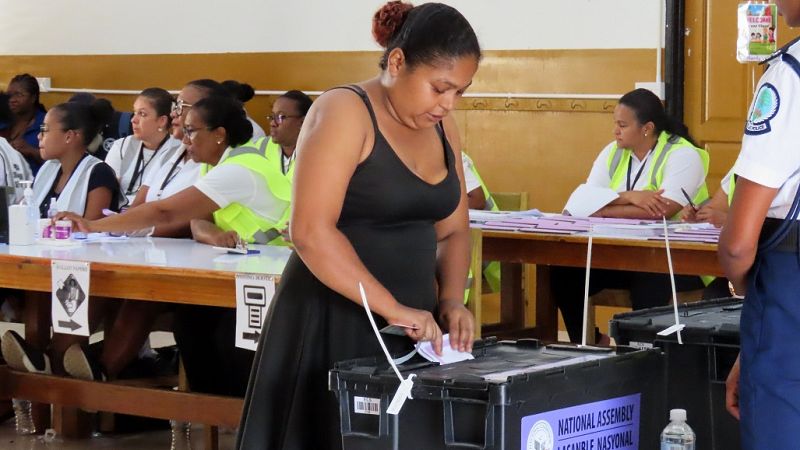Seychelles votes amidst backdrop of drug and environmental concerns

Early voting has commenced across the island nation of Seychelles, setting the stage for a pivotal election where voters are weighing pressing domestic issues like a worsening drug crisis and environmental threats as they choose their next president and parliament.
As ballot papers were distributed to the archipelago's outer islands, the campaign discourse has moved beyond typical political platforms.
Voters heading to the polls cite the dual challenges of a pervasive drug crisis, which threatens social fabric and public health, and ongoing environmental issues, including coastal protection and climate change, as top factors influencing their decision.
These concerns are particularly acute for a nation whose economy is heavily dependent on tourism and its pristine natural beauty.
Ramkalawan seeks re-election
The election presents a key test for incumbent President Wavel Ramkalawan, who is seeking a second term.
Leading Africa's smallest country in both land area and population, President Ramkalawan’s administration has been under scrutiny to effectively address the very issues dominating this election cycle.
His performance on the economy, public safety, and environmental sustainability is being judged by the electorate as they cast their ballots.
Logistics for an island nation
In a logistical effort to ensure all citizens can participate, special polling stations were established on Thursday to facilitate early voting for the elderly and essential workers who may be unable to vote on the official election day.
This proactive measure highlights the unique challenges of conducting elections in a dispersed island nation.
The main presidential and parliamentary elections are scheduled for this Saturday, when the majority of the electorate is expected to turn out to decide the future direction of the country.
Today

